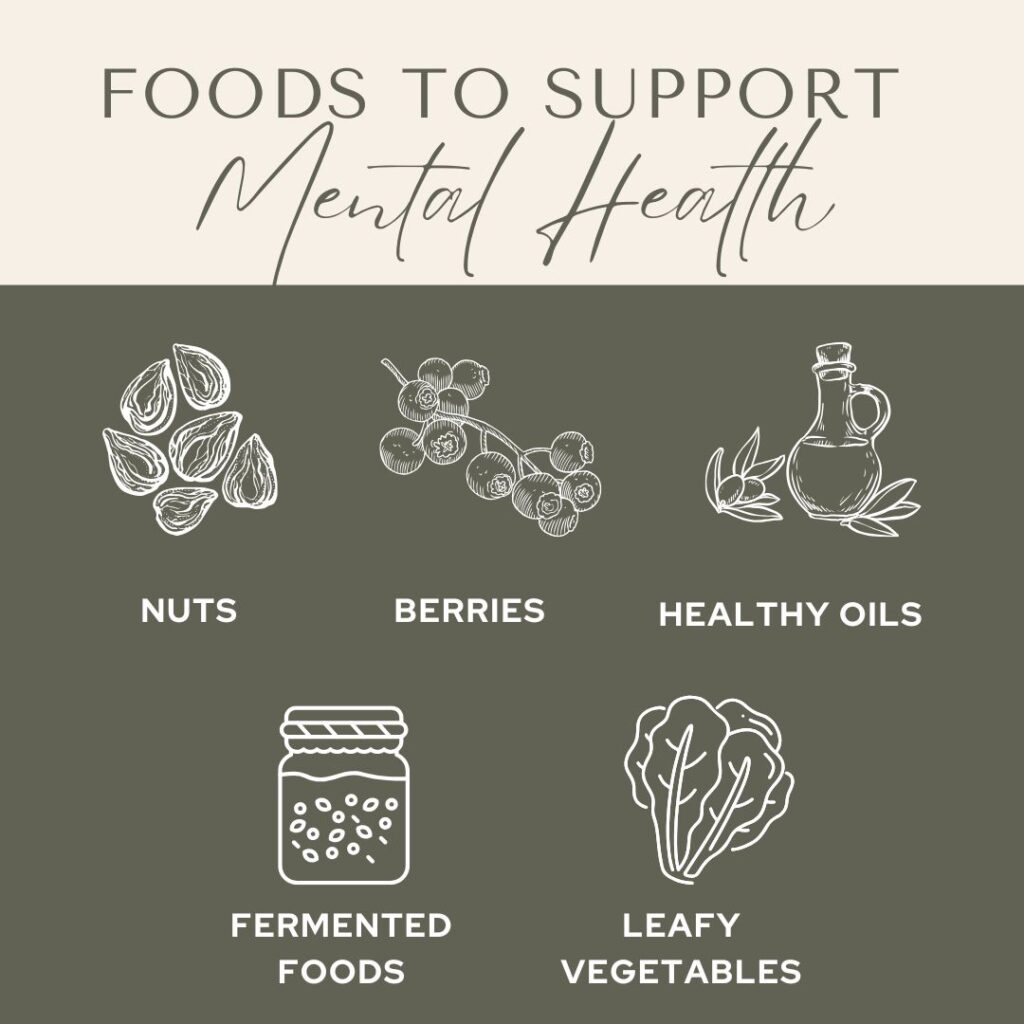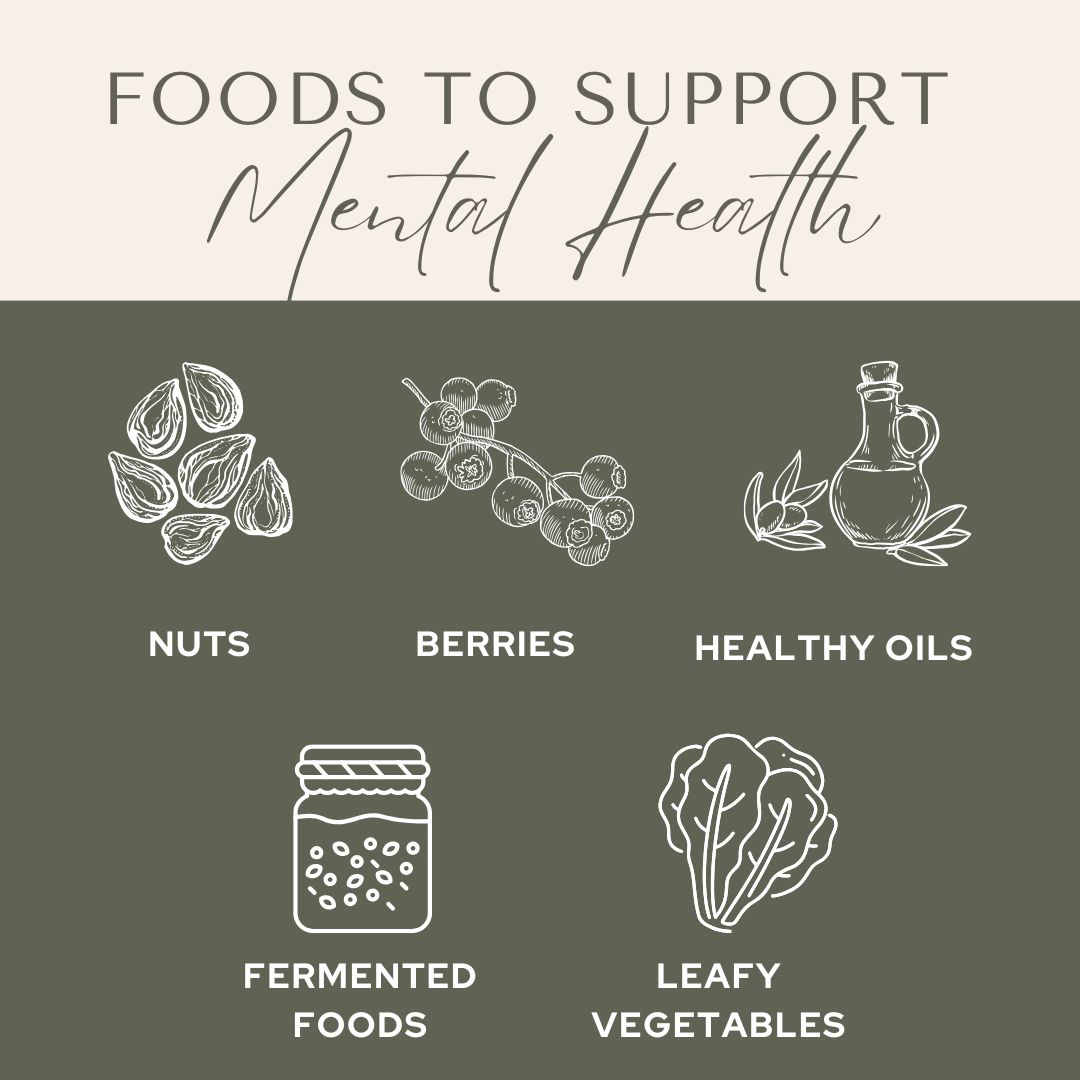Mental health is a state of well-being that enables individuals to cope with the stresses of life, realize their abilities, work productively, and make meaningful contributions to their communities. It’s about how we think, feel, and act as we navigate life.
Taking care of our mental health is important because it can help us:
- Cope with stress: Mental health helps us manage daily challenges and bounce back from setbacks.
- Maintain physical health: Mental health is closely linked to our physical well-being. Neglecting mental health can increase the risk of chronic diseases.
- Build strong relationships: Positive mental health allows us to connect with others, build healthy relationships, and contribute to our communities.
- Achieve our potential: When we feel good mentally, we’re more likely to reach our goals, both personally and professionally.
- Live a fulfilling life: Mental health is essential for overall well-being and happiness.

Here are some foods that may support mental health:
Fruits and vegetables: Rich in vitamins, minerals, and antioxidants, they can help protect brain cells and reduce inflammation. Aim for a variety of colors in your diet.
Whole grains: Provide sustained energy and can help regulate blood sugar levels, which can impact mood. Choose brown rice, quinoa, oats, and whole-wheat bread over refined grains.
Plant Protein: Essential for building and repairing brain cells. Good sources include beans, lentils, and tofu.( Always eat lentils and beans in combination with whole grains to make it a complete protein source)
Healthy fats: Omega-3 fatty acids, found in walnuts, flaxseeds, chia seeds, edamame and seaweed, algae are important for brain function.
Probiotic-rich foods: Curd, Kanji, Yogurt, kefir, sauerkraut, and kimchi can support gut health, which is increasingly linked to mental well-being.
Nuts: Provide healthy fats, protein, and fiber, which can contribute to a stable mood and energy levels.
Berries: Rich in antioxidants and vitamins, they can help protect brain cells and improve cognitive function.
Healthy oils: Olive oil, avocado oil, and coconut oil can provide essential fatty acids that support brain health.
Fermented foods: Yogurt, kefir, sauerkraut, and kimchi contain probiotics that can improve gut health and potentially enhance mood.
Leafy vegetables: Spinach, Methi, kale, and other leafy greens are packed with vitamins, minerals, and antioxidants that can support brain function.
Foods to limit:
- Processed foods: Often high in sugar, unhealthy fats, and sodium, they can contribute to mood swings and energy crashes.
- Sugary drinks: Can lead to blood sugar spikes and subsequent crashes, affecting mood and energy levels.
- Excessive caffeine and alcohol: Can disrupt sleep and worsen anxiety or depression.
Important Note:
- This information is not a substitute for professional medical advice. If you are struggling with mental health, please consult a doctor or mental health professional.
- A balanced diet is key. Focus on incorporating a variety of nutrient-rich foods into your meals.
- Lifestyle factors also play a role. Regular exercise, adequate sleep, and stress management techniques can significantly impact mental well-being.
Disclaimer:
This information is for general knowledge and informational purposes only and does not constitute medical advice. Consult a qualified healthcare professional for diagnosis and treatment of any medical conditions.




Leave a Reply